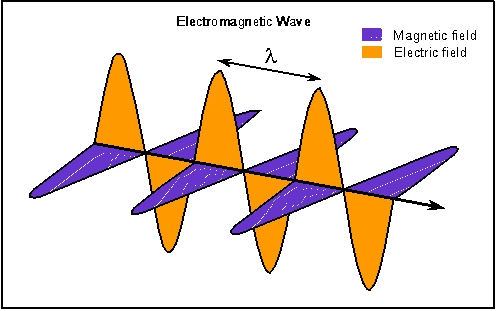


Electromagnetic Course Web-Page
About the Course

A Course on Essential Elements for Electrical and Computer Engineering .
Electromagnetism is fundamental to the whole of electrical and
electronic engineering. It provides the basis for understanding
the uses of electricity and for the design of the whole spectrum of
devices from the largest turbo-alternators to the smallest microcircuits.
Electromagnetic waves are used to transmit long/short/FM wavelength radio waves,
and TV/telephone/wireless signals or energies. They are also responsible for
transmitting energy in the form of microwaves, infrared radiation (IR),
visible light (VIS), ultraviolet light (UV), X-rays, and gamma rays.
Electromagnetic engineers design and develop electromagnetic systems,
devices, and components, such as electromagnets in loudspeakers,
electromagnetic locks, conducting magnets in MRI's, and magnets in electric motors.
Course Info & Grading
========================
Course No. 25-733 for undergraduate students
Time : Sundays & Tuesdays 7:30 - 9:00 AM
Room : Bargh #5
Mid-Term Exam :
Final Exam : Date 1399/04/02 Time :15:30
Grading Policy :
========================
- HWs (1 Mark)
- Quizzes (1 Mark)
- Simulation with COMSOL (1 Mark)
- Midterm (8 Marks)
- Final (9 Marks)
sylabuses
- Vectors and Fields (2 Sessions)
- Vector Algebra
- Cartesian Coordinate System
- Cylindrical and Spherical Coordinate Systems
- Scalar and Vector Fields
- The Electric Field
- The Magnetic Field
- Lorentz Force Equation
- Maxwell’s Equations in Integral Form (4 Sessions)
- The Line Integral
- The Surface Integral
- Faraday’s Law
- Ampère’s Circuital Law
- Gauss’ Laws
- The Law of Conservation of Charge
- Application to Static Fields
- Maxwell’s Equations in Differential Form, and Uniform Plane Waves in Free Space (6 Sessions))
- Faraday’s Law and Ampère’s Circuital Law
- Gauss’ Laws and the Continuity Equation
- Curl and Divergence
- Uniform Plane Waves in Time Domain in Free Space
- Sinusoidally Time-Varying Uniform Plane Waves in Free Space
- Polarization of Sinusoidally Time-Varying Vector Fields
- Power Flow and Energy Storage
- Fields and Waves in Material Media (7 Sessions)
- Conductors and Semiconductors
- Dielectrics
- Magnetic Materials
- Wave Equation and Solution for Material Medium
- Uniform Plane Waves in Dielectrics and Conductors
- Boundary Conditions
- Reflection and Transmission of Uniform Plane Waves
- Electromagnetic Potentials and Topics for Circuits and Systems (5 Sessions)
- Gradient, Laplacian, and the Potential Functions
- Potential Functions for Static Fields
- Poisson’s and Laplace’s Equations
- Capacitance, Conductance, and Inductance
- Electric- and Magnetic-Field Systems
- Magnetic Circuits
- Electromechanical Energy Conversion
- Transmission-Line Essentials for Digital Electronics (4 Sessions)
- Transmission Line
- Line Terminated by Resistive Load
- Transmission-Line Discontinuity
- Lines with Reactive Terminations and Discontinuities
- Lines with Initial Conditions
- Interconnections between Logic Gates
- Crosstalk on Transmission Lines